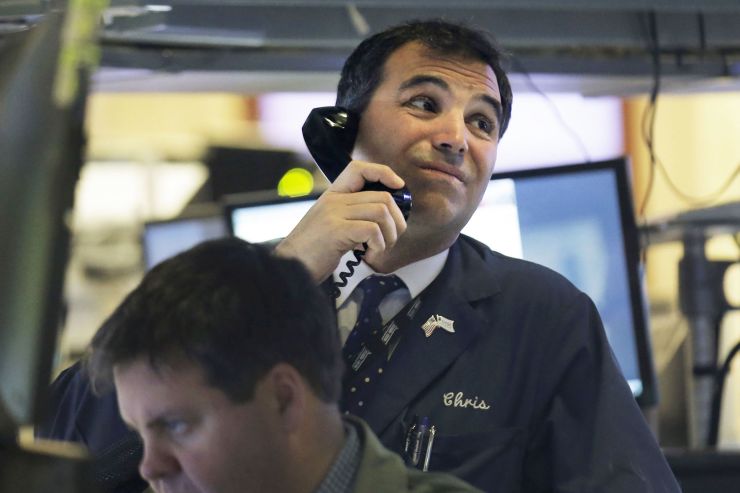
Stocks closed lower on Friday after CNBC reported that trade talks between China and the U.S. have stalled.
The Dow Jones Industrial Average ended the day down 98.68 points at 25,764 while the S&P 500 fell 0.6% to 2,859.53. The Nasdaq Composite was down 1% at 7,816.28. It was also the fourth straight weekly drop for the Dow.
Sources told CNBC’s Kayla Tausche that scheduling discussions for further trade talks have been put on hold since the Trump administration has increased scrutiny of Chinese telecom companies. A U.S. delegation had been invited to Beijing earlier this week.
The report sent the Dow back into negative territory in the final hour of trading, erasing a gain of about 30 points. The S&P 500 and Nasdaq were further knocked down.
Apple shares fell 0.6%, bringing its weekly losses to 4.1%. Caterpillar shares also closed lower.
Earlier this week, the administration made it harder for U.S. companies to do business with Huawei, a giant telecommunications company in China. U.S. firms that want to do business with Huawei must now have a license. Shares of Huawei U.S. suppliers like Qualcomm, Qorvo and Micron Technology fell 1.6%, 6.1% and 3.4%, respectively.
“Through any lens, this is a broadside against the Chinese government, which is generally considered to be the beneficial owner of Huawei,” said Tom Essaye, founder of The Sevens Report, in a note. “This obviously ups the ante in the US-China trade war as the stakes are growing. At this point, it’s unclear how China will respond, but some sort of response is expected.”
China has also ratcheted up its rhetoric on trade with the U.S.
Chinese Commerce Ministry spokesman Gao Feng said Thursday, according to state-run news agency Xinhua, that the U.S. is exhibiting “bullying behavior” with its latest moves on the trade front, noting it is “regrettable that the U.S. side unilaterally escalated trade disputes, which resulted in severe negotiating setbacks.”
The U.S. hiked tariffs on $200 billion worth of Chinese goods last week while China retaliated Monday with higher levies on $60 billion worth of U.S. products.
“People are now coming to grips with the fact that this is going to take a long time,” said Tom Martin, senior portfolio manager at Globalt. “I think we’re going to get more volatility, but generally it makes sense for the market to be where it is right now.”
Chinese stocks fell sharply overnight. The Shanghai Composite dropped 2.5% and posted its longest weekly losing streak since July 2018.
Deere shares fell more than 7.5% after reporting weaker-than-expected earnings. The company cited the ongoing trade war for their disappointing results.
U.S. stocks started off the week with a massive sell-off on Monday. Wall Street followed up those losses with three straight days of gains. However, those gains were not enough to stave off weekly losses. The Dow posted its longest weekly losing streak since May 2016, falling 0.7%. The S&P 500 and Nasdaq fell 0.8% and 1.3% this week, respectively.
The S&P 500 also remains down more than 2% since Trump tweeted about the higher tariffs on May 5.
“Clearly, what unleashed the pullback was the initial tweet saying the additional tariffs were going to kick in,” said Liz Ann Sonders, chief investment strategist at Charles Schwab. “That being said, there are a number of catalysts that could have caused this pullback. We had seen the market get technically overbought. Breadth started to deteriorate. There was tremendous amount of, at best, complacency or, at worst speculative excess.”
“We just needed a spark,” Sonders said.





























